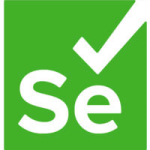What is our primary use case?
We are it using it with the license on individual machines.
We have a bulk of APIs for our different products. Previously, we used to do Postman, and for automation, we used to do C-Sharp code. However, we came to ReadyAPI as it is a tool that can give some exposure to the person who does not have much core coding or programming knowledge.
What is most valuable?
We like the basic features. We can add additional features. It is a hybrid kind of tool. Over here, can add our own code, and we can write the assertion with the script. As a programmer, it is a good tool. We can utilize it dynamically if you have programming skills.
It's great for those that don't have as much exposure to programming.
What needs improvement?
Currently, we are hosting. We have repositories under the Git site, and we are checking our code there. We are executing it with the AWS cloud. The integration with GitHub is not there. They have given us some options. However, it is not workable. We have to check in or pull our code with Visual Studio right now. We have to use Visual Studio to manage that integration, actually.
The UI should be flexible. Currently, the UI isn't. If you want to minimize/maximize it and if you want to use it on a hub screen, you can't use it. It is not that user-friendly.
Cloud integration should be there as modern work is in the cloud.
For how long have I used the solution?
We've been using the solution for the last two years.
What do I think about the stability of the solution?
It is a great tool and has great exposure for future API automation. The only thing that is missing is the integration with the different cloud services so that we can manage that project in the cloud and check in and check out the code. Currently, that core functionality is missing.
What do I think about the scalability of the solution?
It is a scalable solution. However, it is not so flexible. If multiple team members are working together, they have to frequently pull and push the code to sync with the single team and take the latest code, which other team members develop. For better functionality, we have to go every time to Visual Studio.
Multiple teams are using the solution right now. On my team, we have seven to eight people using it. I'm unaware of how many people are using it from the client side. Users are a mix of automation testers and manual functional testers.
How are customer service and support?
I do not personally contact technical support. Another team member handled that aspect. We used to communicate with SmartBear, and if there were any critical issues, we would reach out. However, I don't handle that aspect. From what I understand, support is helpful.
Which solution did I use previously and why did I switch?
Previously, we used to code the API automation in C-Sharp. That could be handled by the core programming person. I'm a core programming guy, so I can manage that code and write the new scripts for the automation. However, we found that we could utilize this tool so that a person with basic knowledge and not core programming knowledge could also contribute to this tool with the API automation. That is the basic module.
This tool is giving exposure to resources with little programming knowledge. They can also start contributing to this, and certainly, they can learn the programming part of that tool as well. However, in terms of the UI part, through the UI, we can automate the API. It depends on our logic, and how we want to utilize the different assertions and different checks. If you have programming knowledge, you can also use that tool with the programming part. The idea, however, was to make it more useable for everybody.
How was the initial setup?
The initial setup of ReadyAPI was considered to be easy. It's quite straightforward. We have to download the .EXE and install it and register with the license. That's it.
It will take not more than five minutes if you follow the instructions.
What's my experience with pricing, setup cost, and licensing?
I'm not sure of the exact cost.
What other advice do I have?
We are a customer and end-user.
If you are going to use this product, you should have a basic knowledge of APIs and how APIs work. This is an API automation tool specific to automating the APIs. If you have previous exposure to an open-source tool, like Postman, then you can easily get started with this tool. However, you must go through basic training if you don't know APIs and never work on APIs.
I'd rate it six out of ten. It gives us core value, however, the UI isn't great.
Which deployment model are you using for this solution?
Public Cloud
If public cloud, private cloud, or hybrid cloud, which cloud provider do you use?
Amazon Web Services (AWS)
Disclosure: My company does not have a business relationship with this vendor other than being a customer.


















